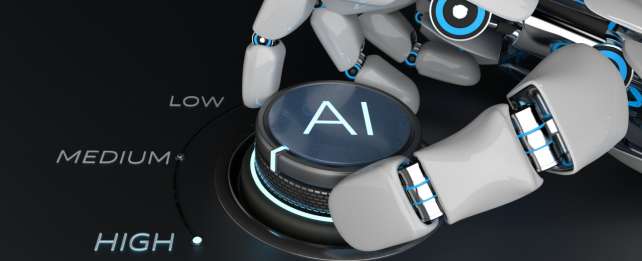Share This Article
Artificial Intelligence (AI) is no longer the stuff of science fiction. This groundbreaking technology is already transforming the professional landscape, revolutionizing the way we work and dramatically altering various industries. The rapid rise of AI has brought both opportunities and challenges, stirring up complex feelings ranging from excitement to apprehension. This comprehensive guide aims to demystify AI’s impact on careers and provide actionable strategies to help you adapt to and thrive in the AI-driven workplace.
Understanding AI and Its Relevance in the Workplace
AI, at its core, is about building machines capable of thinking like humans and performing tasks that would normally require human intelligence. These tasks include learning from experience, understanding complex concepts, recognizing patterns, interpreting spoken language, and making decisions. In the workplace, AI applications range from chatbots providing customer support to sophisticated machine learning algorithms predicting market trends.
AI holds immense potential to increase productivity, efficiency, and accuracy in the workplace. For instance, AI can automate mundane, repetitive tasks, freeing up employees’ time to focus on more strategic, value-adding tasks. AI can also provide deep insights, enabling data-driven decision-making, and predictive analytics.
AI’s Dual Impact on the Job Market
AI’s effect on the job market is complex and multifaceted. On the one hand, it poses the threat of automation-related job displacement. Routine, repetitive jobs, particularly in manufacturing, data entry, and customer service, are at high risk of being automated.
Editor’s Choice
On the flip side, AI is a significant job creator. It’s leading to the emergence of new roles, particularly in tech, data analysis, and AI ethics. Moreover, it’s transforming existing jobs, requiring workers to develop new skills to harness the power of AI.
Lifelong Learning: The Key to Navigating AI-Driven Changes
In the era of AI, one skill stands paramount: the ability to learn continuously. Lifelong learning is the key to staying relevant and competitive. It involves actively seeking new knowledge, skills, and experiences, regardless of your career stage.
For instance, familiarizing yourself with AI concepts, even at a basic level, can help you understand how this technology can impact your job and how you can leverage it. Additionally, upskilling or reskilling in areas such as data analysis, machine learning, or AI programming can open up new career opportunities.
Harnessing Your Human Edge: The Power of Soft Skills
While AI is incredibly powerful, there are skills it cannot replicate—our uniquely human skills. These include creativity, critical thinking, emotional intelligence, leadership, and complex problem-solving. As AI takes over more routine tasks, these soft skills become increasingly valuable.
Emphasizing your soft skills can help you stand out in an AI-driven job market. It’s about showcasing your ability to think critically, solve complex problems, lead teams, and navigate emotional landscapes—capabilities that machines are far from mastering.
Exploring AI-Related Careers
AI is not just reshaping existing jobs; it’s also creating entirely new career paths. These include roles like AI specialists, data scientists, machine learning engineers, and AI ethicists. If you’re interested in AI, exploring these careers can be a rewarding avenue. These roles typically require a combination of technical skills (like programming and statistics) and critical thinking.
Integrating AI Tools Into Your Work
Regardless of your job, there’s a good chance that AI can enhance your work. Numerous AI tools can streamline tasks, automate processes, provide insights, and boost productivity. Familiarizing yourself with relevant AI tools and learning to use them effectively can make you a more efficient, valuable, and competitive professional.
The rise of AI is a transformative force in the world of work, and adapting to it is not a choice but a necessity. However, rather than viewing AI as a threat, we can choose to see it as an opportunity—an opportunity to learn, grow, and redefine our professional lives. By understanding AI, committing to lifelong learning, leveraging our uniquely human skills, exploring AI-related careers, and integrating AI tools into our work, we can not only navigate the AI revolution but also drive our career development in exciting new directions. The future of work lies at the intersection of humans and AI, a future where we use AI to augment our human capabilities and create a more productive, innovative, and fulfilling professional world.



